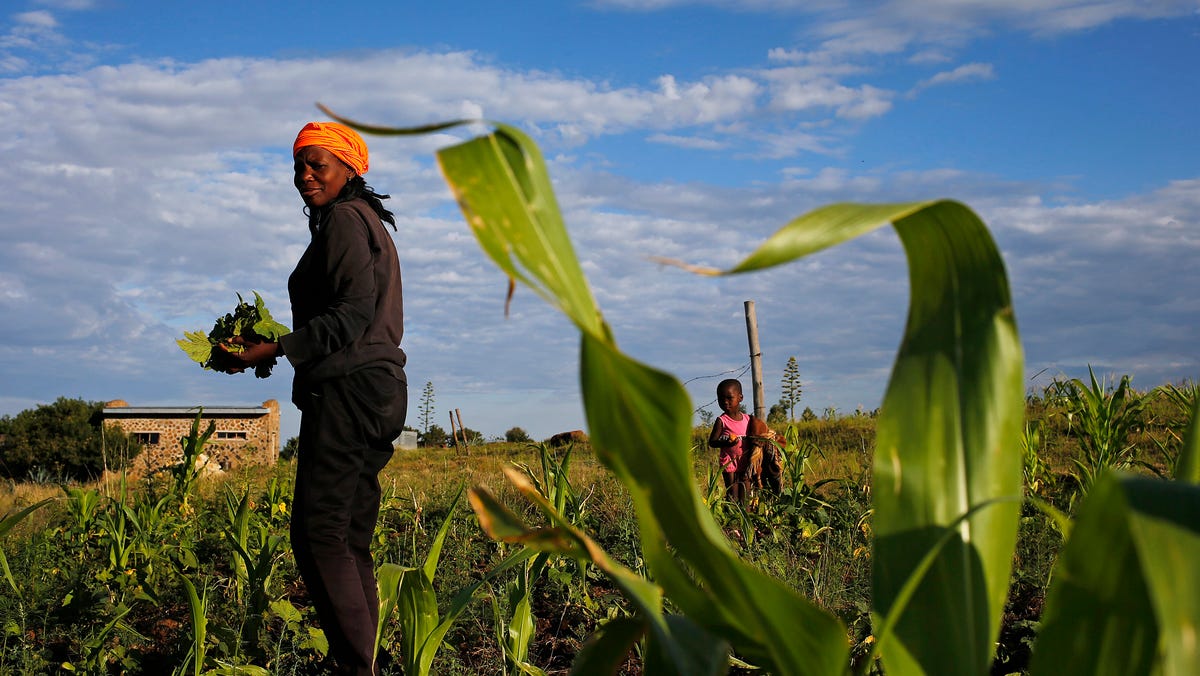Global Trade War: Lesotho's Tariff Burden – A Small Nation's Struggle
The ongoing global trade war casts a long shadow, impacting even the smallest nations. Lesotho, a landlocked country entirely surrounded by South Africa, is feeling the pinch, particularly through increased tariff burdens. This article explores the complexities of Lesotho's situation, examining the impact of escalating trade tensions and exploring potential solutions for this vulnerable economy.
The Impact of Global Trade Wars on Lesotho
Lesotho's economy is heavily reliant on exports, primarily textiles and garments, making it exceptionally vulnerable to fluctuations in global trade. The imposition of tariffs by major economic powers directly impacts the competitiveness of Lesotho's exports, reducing demand and hindering economic growth. This is exacerbated by Lesotho's landlocked status, increasing transportation costs and logistical challenges.
Increased Tariffs and Reduced Export Revenue
The escalating trade war between major players has resulted in a domino effect, with increased tariffs impacting various sectors globally. For Lesotho, this translates to:
- Reduced market access: Higher tariffs in key export markets make Lesotho's products less competitive compared to those from countries with preferential trade agreements.
- Lower export volumes: As demand decreases due to higher prices, Lesotho's export volumes suffer, impacting revenue generation for businesses and the government.
- Job losses: Reduced export revenue often leads to factory closures and job losses, particularly within the textile and garment industry, which employs a significant portion of Lesotho's workforce.
- Economic slowdown: The cumulative impact of reduced exports and job losses contributes to an overall economic slowdown, hindering development efforts.
Dependence on South Africa and Regional Trade
Lesotho's geographical location presents both opportunities and challenges. Its dependence on South Africa for trade presents a double-edged sword. While South Africa remains a crucial trading partner, any trade disruptions affecting South Africa directly impact Lesotho's economy. Furthermore, any regional instability or trade disputes involving South Africa can severely impact Lesotho's access to international markets.
Navigating the Challenges: Potential Solutions for Lesotho
Lesotho needs a multi-pronged approach to mitigate the negative effects of the global trade war and build a more resilient economy. This involves:
Diversifying Export Markets
Reducing reliance on a limited number of export markets is crucial. Lesotho should actively seek new trading partners and explore opportunities in emerging markets, potentially through leveraging existing trade agreements or negotiating new ones.
Investing in Value-Added Production
Focusing on value-added production can enhance the competitiveness of Lesotho's exports. This could involve investing in technology, skills development, and promoting higher-value products to command better prices in international markets.
Strengthening Regional Integration
Strengthening regional economic integration within the Southern African Development Community (SADC) can improve market access and reduce trade barriers. Collaboration with neighboring countries can improve infrastructure and facilitate smoother trade flows.
Seeking International Support
Lesotho can benefit from seeking technical and financial assistance from international organizations like the World Trade Organization (WTO) and the International Monetary Fund (IMF) to navigate the challenges of the global trade war and implement necessary economic reforms.
Conclusion: A Call for Global Cooperation
The global trade war presents significant challenges for small economies like Lesotho. Addressing these challenges requires a concerted effort from both the Lesotho government and the international community. Promoting fair trade practices, fostering greater global cooperation, and supporting vulnerable nations are crucial steps in ensuring a more equitable and sustainable global trading system. The future of Lesotho's economy hinges on its ability to adapt and innovate in the face of these ongoing global uncertainties. Further research and analysis into the specific impact of tariffs on Lesotho's economy are needed to develop more targeted and effective solutions.
